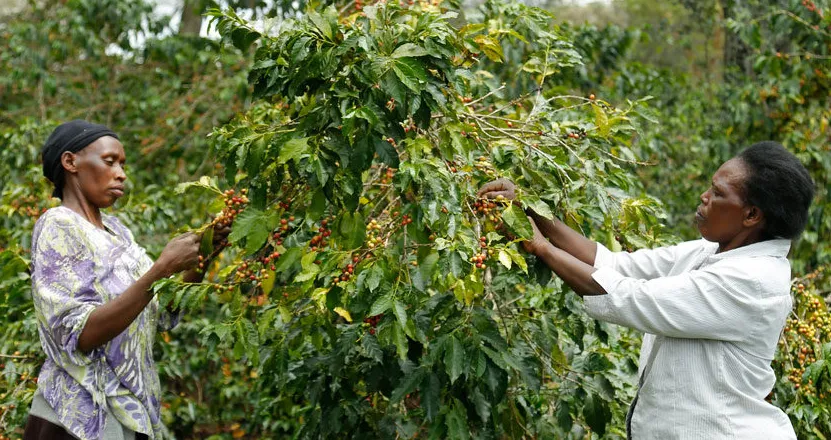Coffee, a beloved beverage consumed worldwide, faces a significant challenge due to the impacts of climate change. A team of experts in botany, agriculture, and the coffee industry from Uganda and the U.K. has shed light on the need for coffee growers to find innovative ways to adapt to the changing climate.
In their recent publication in the journal Nature Plants, the researchers discuss three potential options for coffee growers and highlight their preferred choice.
Understanding the Climate Change Challenge
The study examines the existing and potential future impacts of climate change on coffee bean production. It reveals that regions where coffee plants thrive are experiencing shifts in temperatures and less predictable rainfall patterns. These changes pose a considerable risk to the sustained production of coffee beans.
Exploring Adaptation Options
Recognizing the need for coffee growers to make adjustments, the researchers identify three main options: relocation to more suitable areas, altering cultivation practices, or transitioning to different varieties of coffee beans.
After careful evaluation, the researchers argue that the third option holds the most promise.
The Viable Alternative: Liberica Coffee Beans
Currently, the majority of coffee consumed globally is derived from either arabica or robusta coffee beans.
However, both varieties have witnessed decreased yields in recent years due to drought-induced limitations in many regions.
The researchers propose that coffee growers should consider shifting towards cultivating Liberica coffee bean plants.
More To Discover
- Keurig Introduces Compostable Coffee Pucks To Fix The K-Cup Waste Problem They Started
- Unsustainable Coffee Production Linked to Health Issues, Urgent Changes Needed
- How Leftover Coffee is Supercharging Green Building (Read it Scientifically or Keep it Fun)
- Starbucks in Hot Water: Lawsuit Challenges Their ‘100% Ethical’ Coffee Claims

Extensive testing at various sites has demonstrated that Liberica coffee beans exhibit greater resilience to variable weather conditions. Additionally, these beans remain on the plants after reaching maturity, facilitating the harvesting process.
Challenges and Benefits of the Switch
While acknowledging some challenges associated with transitioning to Liberica coffee beans, such as their tougher skin and the risk of fermentation if not promptly harvested, the researchers emphasize the long-term benefits. They argue that the switch is necessary as the demand for arabica beans may surpass the ability to produce them in the coming years.
By embracing Liberica coffee beans, coffee growers can ensure a more reliable supply chain and meet consumer demand even in the face of changing climatic conditions. Although processing these beans may require additional care and expertise, the potential benefits outweigh the drawbacks.
Conclusion: Embracing Resilience in the Coffee Industry
As climate change poses an imminent threat to coffee production, adaptation strategies become crucial for the sustainability of the industry. Coffee growers must explore innovative alternatives, such as transitioning to Liberica coffee bean plants, to overcome the challenges associated with changing climatic conditions.
By proactively adapting cultivation practices and diversifying coffee bean varieties, the industry can maintain a consistent supply of high-quality coffee for consumers worldwide.
As coffee enthusiasts, let us support and appreciate the efforts of coffee growers as they navigate the complexities of a changing climate to ensure our cherished beverage remains an integral part of our lives.



















